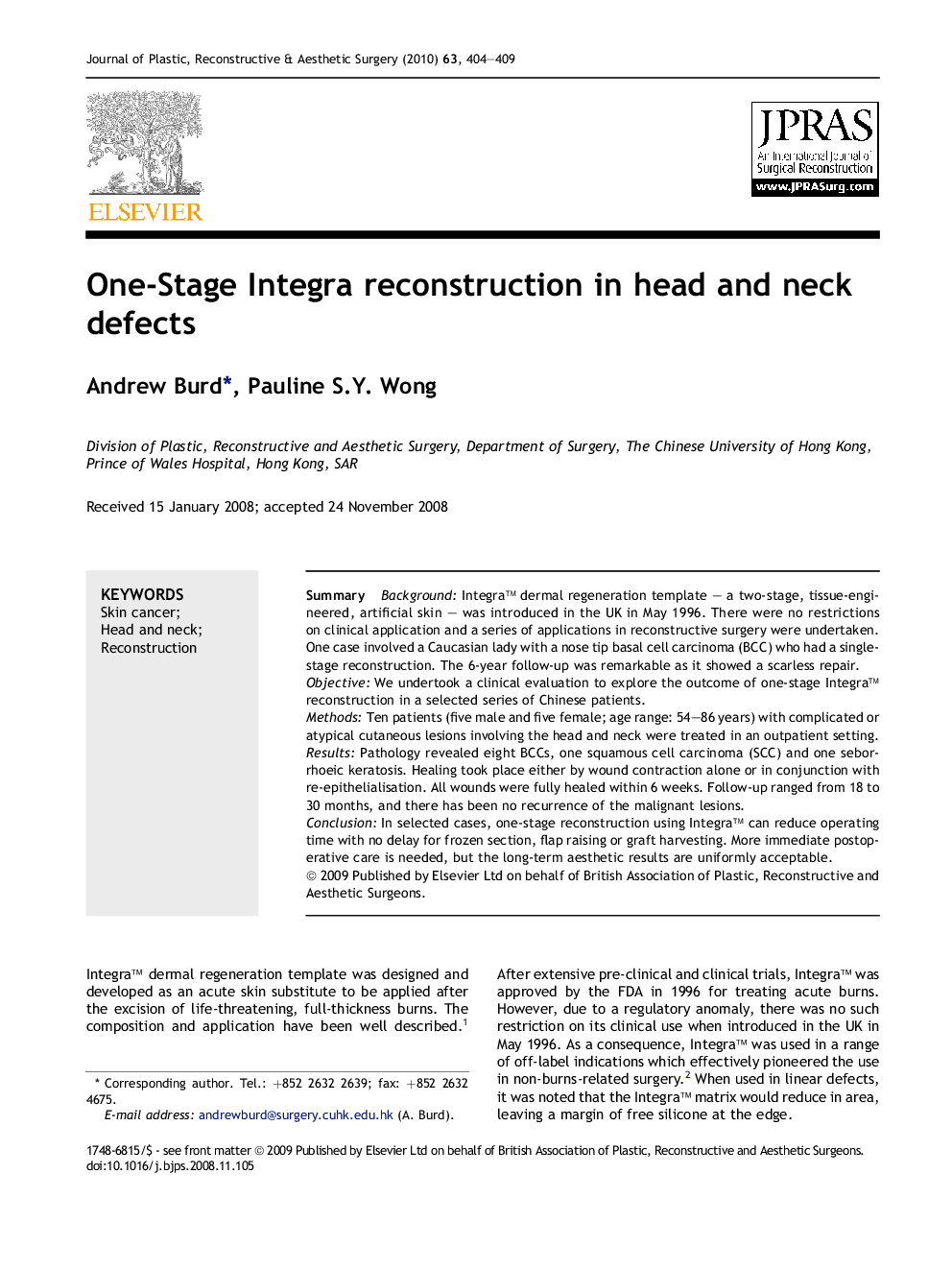| Article ID | Journal | Published Year | Pages | File Type |
|---|---|---|---|---|
| 4119857 | Journal of Plastic, Reconstructive & Aesthetic Surgery | 2010 | 6 Pages |
SummaryBackgroundIntegra™ dermal regeneration template – a two-stage, tissue-engineered, artificial skin – was introduced in the UK in May 1996. There were no restrictions on clinical application and a series of applications in reconstructive surgery were undertaken. One case involved a Caucasian lady with a nose tip basal cell carcinoma (BCC) who had a single-stage reconstruction. The 6-year follow-up was remarkable as it showed a scarless repair.ObjectiveWe undertook a clinical evaluation to explore the outcome of one-stage Integra™ reconstruction in a selected series of Chinese patients.MethodsTen patients (five male and five female; age range: 54–86 years) with complicated or atypical cutaneous lesions involving the head and neck were treated in an outpatient setting.ResultsPathology revealed eight BCCs, one squamous cell carcinoma (SCC) and one seborrhoeic keratosis. Healing took place either by wound contraction alone or in conjunction with re-epithelialisation. All wounds were fully healed within 6 weeks. Follow-up ranged from 18 to 30 months, and there has been no recurrence of the malignant lesions.ConclusionIn selected cases, one-stage reconstruction using Integra™ can reduce operating time with no delay for frozen section, flap raising or graft harvesting. More immediate postoperative care is needed, but the long-term aesthetic results are uniformly acceptable.
